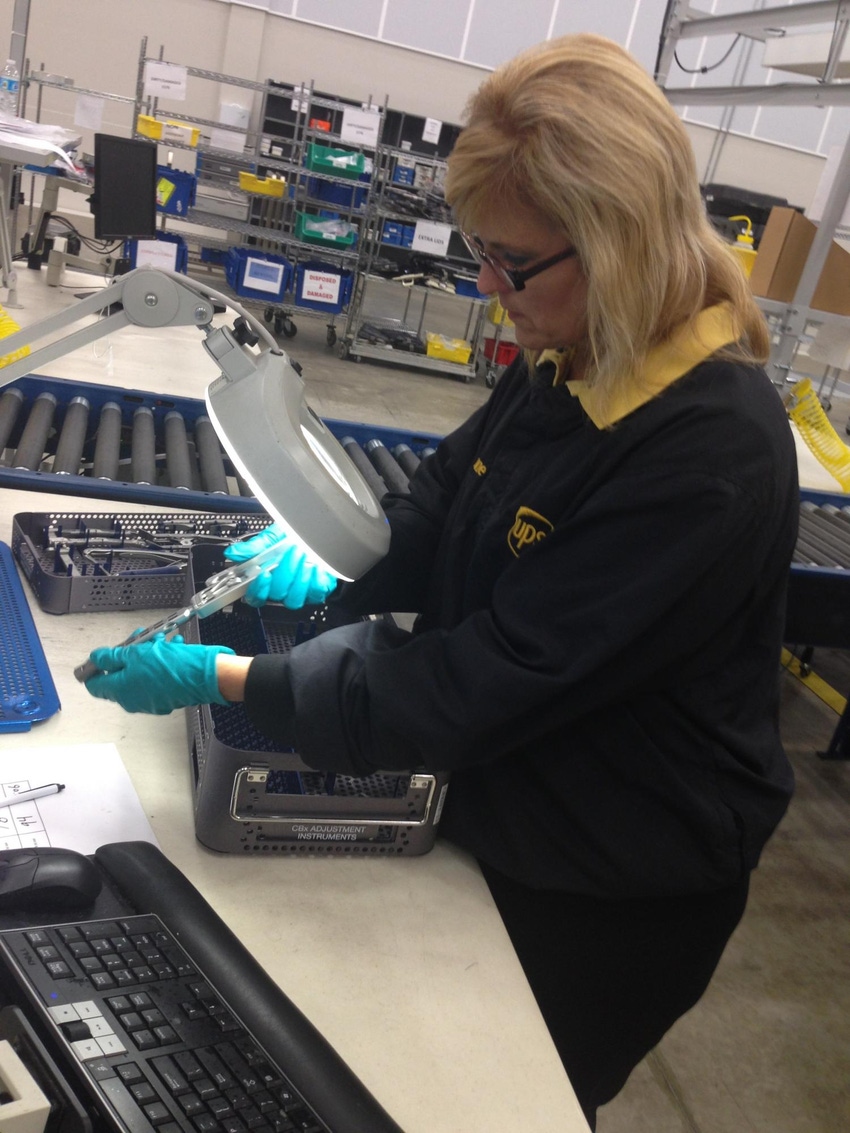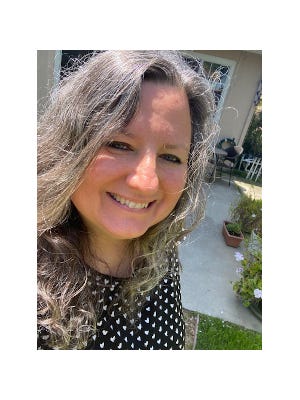UPS now supports processing, replenishment, distribution of loaner surgical kits
November 16, 2015

Managing inventory in the field can be a time-consuming challenge for medical device manufacturers and their sales representatives.
“OEMs work to ensure that surgical sets are ready for surgery, and their reps, who will be in surgery with the surgeons, need to ensure that they supply the right set, at the right time, with the right quantity of supplies,” explains Josh Cannon, UPS’s global healthcare strategy director. After every surgery, the unused portions of these loaner sets go through hospitals’ central sterilization departments and then back to the sales representatives to arrange replenishment.
“About 30-40% of sales reps’ time is spent on inventory. Why should they be worrying about replenishing parts?” asks Cannon.
UPS is working to “bring simplicity and added value to a complex system,” says Cannon. The global logistics company is building upon its medical device capabilities strategy, established last year with a network of field stocking locations (FSLs), to include a new distribution and warehousing facility that offer services such as autoclave capabilities, instrument inspection, and surgical set replenishment, among other services.
The 208,000-sq-ft facility is located in Swedesboro, NJ, near UPS’s air hub at Philadelphia International Airport. The facility can process loaner surgical kits so that OEMs and distributors can reach more than 80 percent of U.S. hospitals within four hours of shipment. “We autoclave and inspect incoming surgical sets, validate the number of parts used by the hospital, replenish from stock, and send the sets out using UPS’s same-day or other best-in-class delivery options,” says Cannon.
UPS tracks all items throughout the process and can provide a level of visibility that is often lacking with what Cannon calls “trunk stock” to describe the inventory that sales reps frequently carry. It can also facilitate billing. “For the majority of products on consignment, billing doesn’t take place until after surgery. Our systems will help provide the necessary visibility.”
UPS uses software from Baxter Planning to track components and kits. “We can plan the number of sets needed based on usage,” says Cannon. “It gives us a better means to plan inventory and actually reduce inventory. We can take 25 to 30% of the inventory out of the field.”
All that sales reps need to do “is feed information from surgeons to UPS 24 to 48 hours prior to surgery,” he says. “We can help make a sales rep more productive so they can assist more surgeons and help their companies grow more revenue.”
UPS maintains product and data quality throughout the process through extending its Quality System and SOPs to the new facility as well as its FSLs. It also maintains strict temperature control if needed and is evaluating how it can assist with device identification.
“We are in deep consultation with OEMs to understand their needs. Pressures are high on OEMs for turnaround and cost,” Cannon says. “So we are developing cost-effective, compliant programs that offer quick turnaround time and can help reduce costs.”
The medical device distribution strategy is part of UPS’s overall healthcare logistics plan. “UPS continues to strengthen our integrated network globally to help manufacturers lower costs, streamline inventory, and meet increasing demands,” says John Menna, UPS vice president of global healthcare strategy, in a news release. “In the U.S., building out a best-in-class, comprehensive service that integrates a loaner hub with our vast FSL and global transportation network raises the bar and further demonstrates our commitment to the healthcare industry.”
About the Author(s)
You May Also Like




